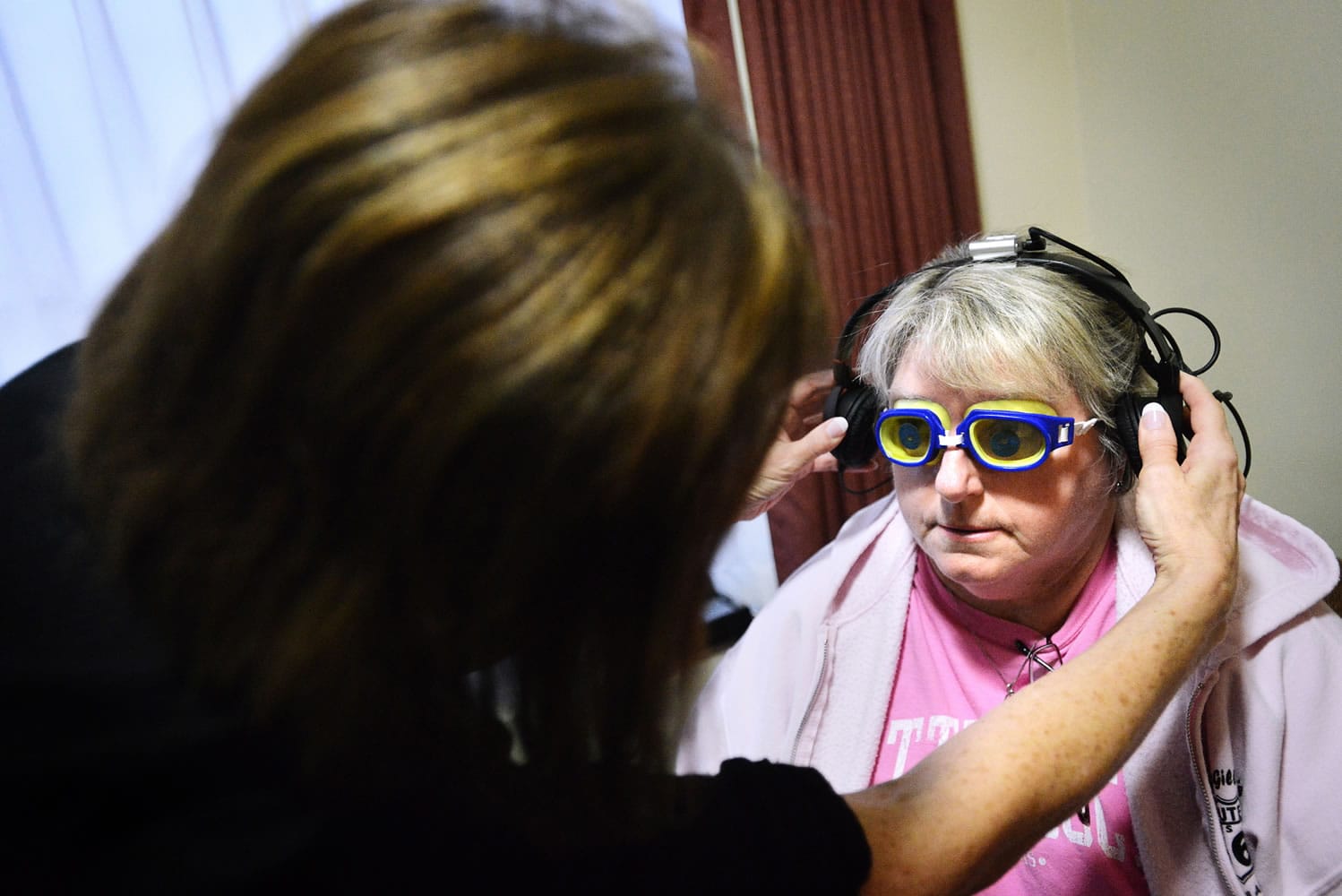PENDLETON, Ore. — Sometimes, the only way to truly understand another is to walk in their shoes.
That’s the premise behind the Virtual Dementia Tour, a jarring journey into the life of someone with dementia. Good Shepherd Medical Center offered tours in a room at the Hermiston Oxford Suites hotel earlier this month.
Dozens of people braved the virtual tour, stumbling headfirst into the world of dementia. One of them, Gayle Yoder, donned goggles, gloves, shoe inserts and headphones as Good Shepherd health educator Kathy Thomas explained the purpose of each accessory.
The goggles, with discoloration and a dark spot on each lens, mimicked macular degeneration, glaucoma and reduced peripheral vision. Gloves featured bumps on the interior that blocked sensory input and, with several fingers taped together, added the feel of arthritis. Little nubs on shoe inserts gave the feeling of pins and needles to simulate neuropathy.
Headphones added the finishing — and most confusing — touch. Into Yoder’s ears flowed a cacophony of environmental sounds.
The result was a carnival house-esque feel that spiked the Echo woman’s anxiety level.
Thomas pointed to the door of a suite and told Yoder to make herself at home. She gave Yoder five tasks to complete, such as “set the table” and “write a note to your family and put it in an envelope.”
Like most who took the tour, Yoder couldn’t finish all the tasks. She wandered around the suite trying to recall the last two and finally gave up in frustration.
“It was very confusing,” she said. “I felt lost.”
Yoder took the tour because she cares for her 96-year-old mother with dementia.
“I know how it looks from my side,” she said. “I wanted to know how it looked from her side.”
Other tour-goers mumbled or hugged close to walls. In short, they looked like people with dementia.
‘Whole new attitude’
Tammy Martin, another health educator who has worked with the elderly most of her career, said the simulation replicates medium-to-severe dementia. She said most who take the dementia tour undergo a paradigm shift of understanding. She recalled one woman from a round of tours in May who arrived with her husband, who suffered from dementia.
“In the pre-test, she was not very compassionate,” Martin said. “She indicated her husband’s behaviors were intentional.”
The tour flipped the woman’s perception.
“She came out with a whole new attitude,” Martin said. “When she took her mask off, she was practically sobbing.”
P.K. Beville, the Georgia geriatric specialist who invented the tour, researched what happens inside the brains of dementia sufferers and fashioned the simulation using the results. She believes people need to understand the dementia experience.
“Dementia is being diagnosed every 69 seconds in the U.S.,” Beville said in a phone interview. “There is no magic pill in the pipeline.”
She said the dementia tour was originally an attempt to give insight to caregivers.
“People really do need to walk in the shoes of someone in order to help them,” she said. “They need to step outside their comfort zone.”



